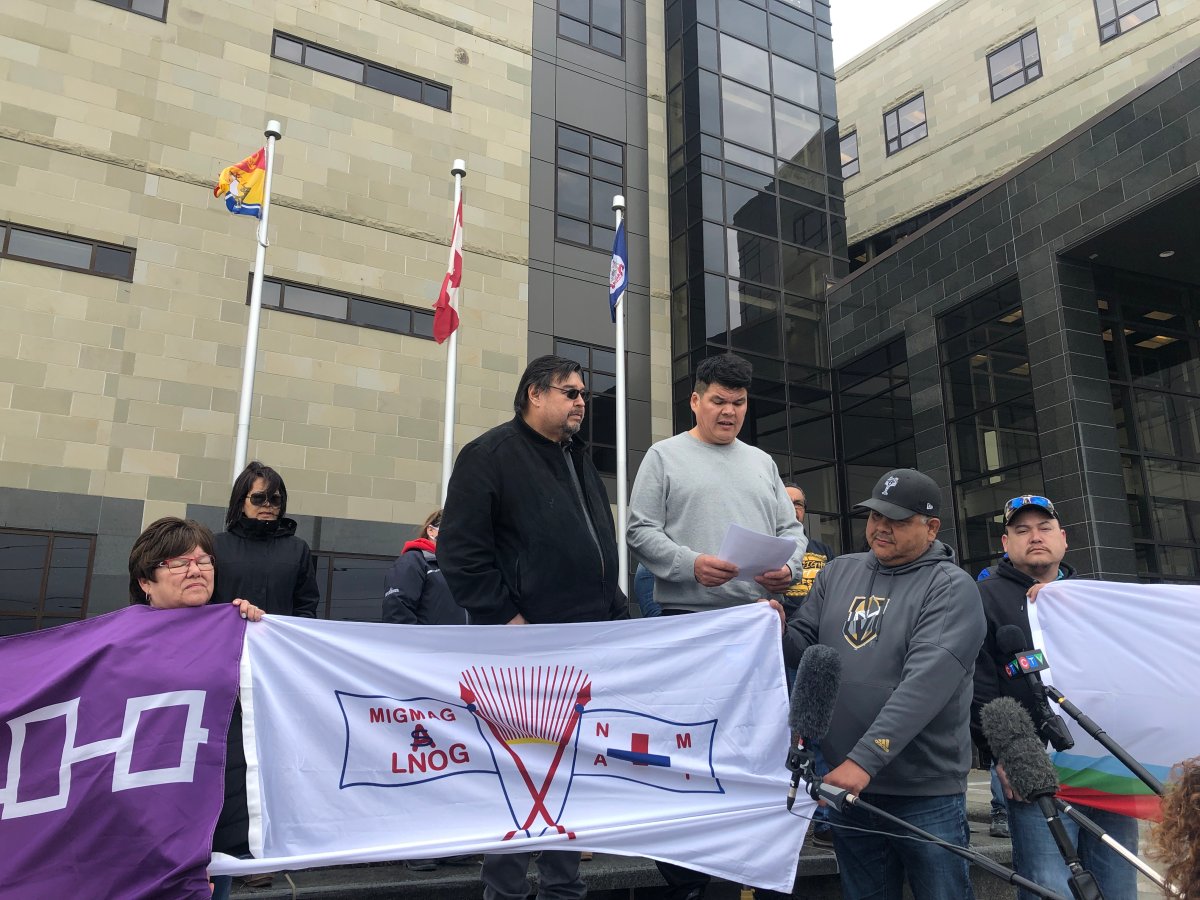Indigenous leaders in New Brunswick spoke out on Friday about what they say are “injustices that are happening to our people.”

The pronouncement comes only days after a 57-year-old was acquitted in the fatal hit-and-run death of Brady Francis.
Francis, who was part of the Elsipogtog First Nation, was killed in the February 2018 crash in Saint-Charles, N.B at the age of 22.
“The future of our place within this legal institution has let us down countless times,” Elsipogtog Chief Arren Sock said outside of the courthouse.
Before the group of more than a dozen people gathered together in solidarity while Sock spoke, he asked a courthouse staff member to fly some of their Mi’kmaq flags on the court’s flag poles.
Currently, there is no Mi’kmaq flag.
They brought the Mi’Kmaq flag, Elsipogtog flag and Mohawk flag.
“We brought our flags to remind the courts here too, that we are deserving of the laws and the protections on the same footing as everyone else who is not an Indian,” Sock said.
“When we made treaties with the newcomers in 1725-1726, our ancestors agreed to set aside our laws of vengeance in exchange for meaningful satisfactory access to his majesty’s laws and courts,” he said.
He said having their flags fly at court would help the community move forward.
The chief thanked people for supporting them and Brady Francis’ family during the proceedings and after the verdict that came Monday.
Concerns were raised about what they say is a lack of resources from the provincial and federal governments.
“They should start at the table; they should be calling us right now and say what can we do to fix this, how can we work together, where can we bring resources into your first nation so that you can grow?” Band Councillor Ruth Levi told reporters.
“New Brunswick does nothing to improve our relationship with them,” Sock said.
“Don’t look to us and ask what type of protest we’re going to be doing, what type of roadblock we’re going to be doing, if we’re going to be blocking trains — no, no New Brunswick, what are you going to be doing, and what are you going to do to change the injustices that are happening to our people?” Sock said.
He also said it would be important to have Indigenous people working in the court system.
Another concern raised by the group was the language barrier that presented itself during the trial. Maurice Johnson, who was acquitted earlier this week, chose to be tried in French.
While the court provided no translation, the Francis family and community members who attended the trial were able to sit in a separate courtroom where they brought in an interpreter.
In her ruling, Court of Queen’s Bench Justice Denise LeBlanc said the Crown was unable to prove its case beyond a reasonable doubt.
While most decisions are released in the language of the proceeding, LeBlanc’s was released in both official languages, English and French.
There has been no decision made yet if the Crown will appeal the case.
A fundraiser posted online, aimed at supporting the family in finding “other options to find Justice for Brady” or to support an appeal, has already raised more than $14,000 as of Friday evening.








Comments